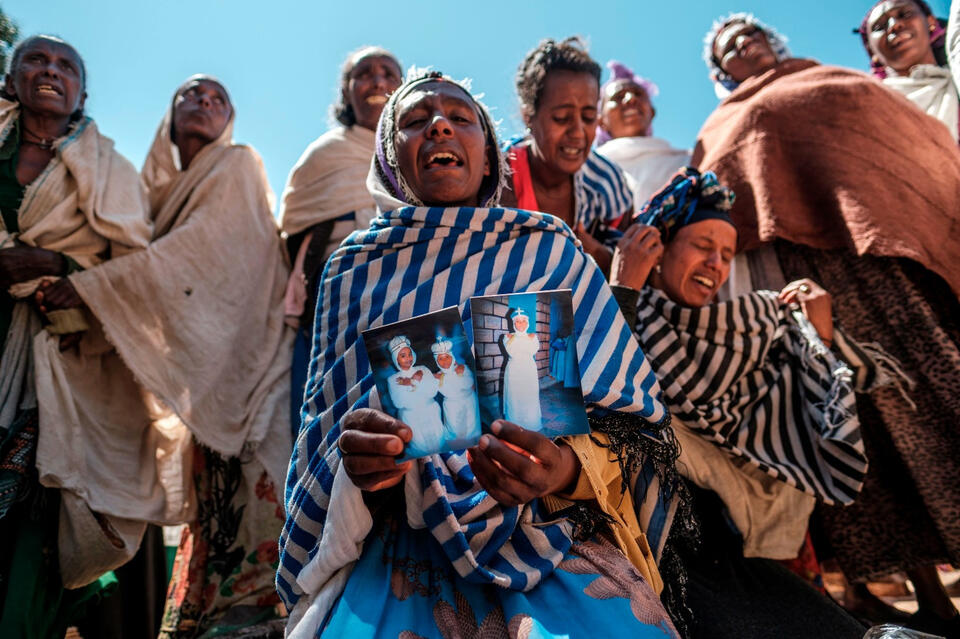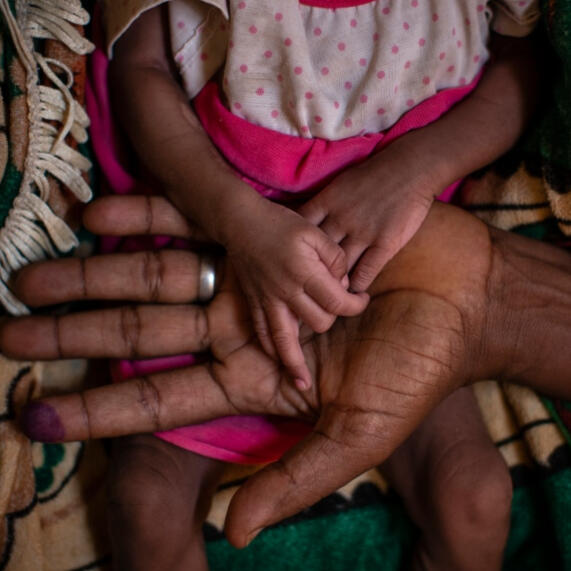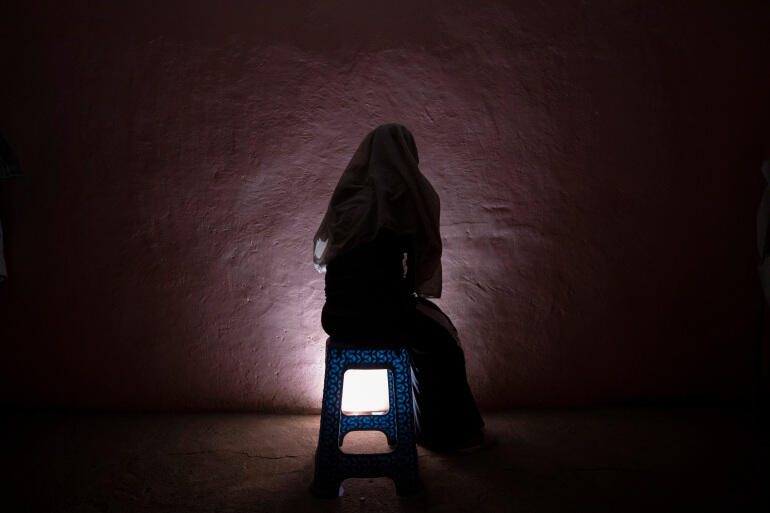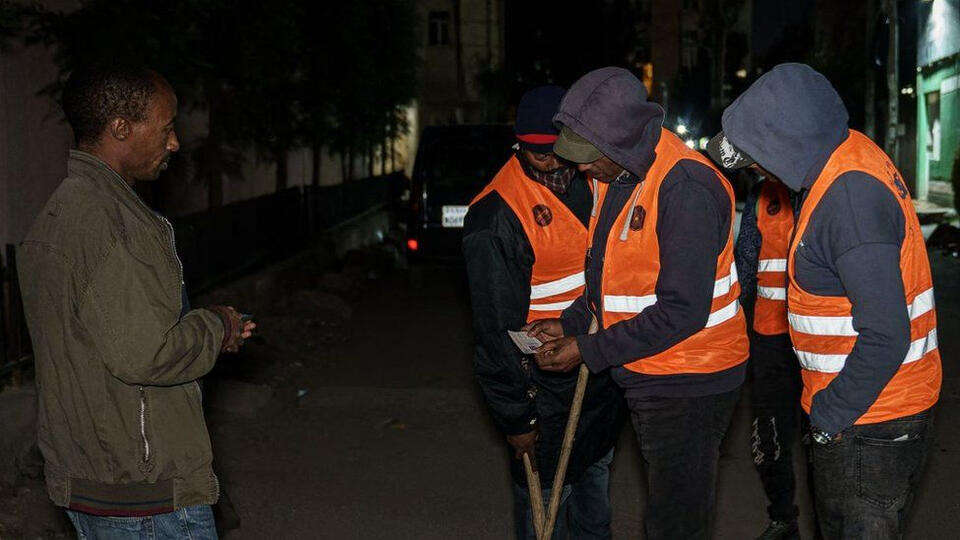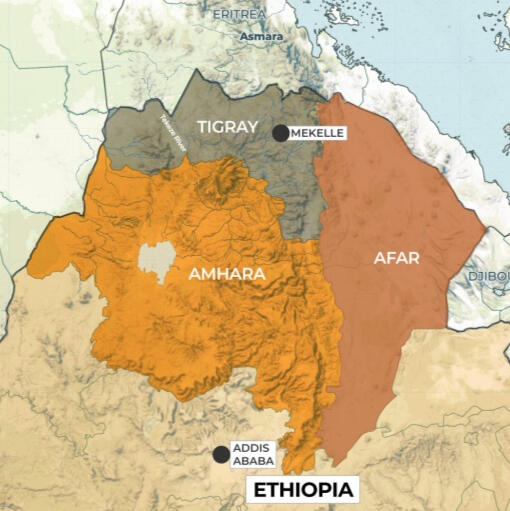
end Tigray genocide
Tigray is the northern region of Ethiopia. It is landlocked and bordered by Eritrea, Sudan, and the Afar and Amhara regions of Ethiopia. Tigrayans are an ethnic minority that makes up ~6% of Ethiopia's population. On November 4th, 2020, the unelected Prime Minister of Ethiopia, Abiy Ahmed, declared a genocidal war on Tigray in collaboration with the Dictator of Eritrea, Isaias Afwerki, and the Amhara region of Ethiopia. Under the leadership of Abiy and Isaias, Ethiopian troops, Eritrean troops, and Amhara Militias are committing significant war crimes, crimes against humanity, and ethnic cleansing in Tigray. The humanitarian crisis is extremely dire with mounting evidence of weaponized starvation, weaponized sexual and gender-based violence against women and girls, collapsed healthcare system, widespread looting, and targeting of civilians. For months, the Ethiopian government has limited and/or blocked access to electricity, communication, internet, aid, food, and water for millions of Tigrayan civilians. Join us in calling for an immediate end to the violence, full humanitarian access to the region, withdrawal of Eritrean, Amhara, and Ethiopian troops, and independent investigation into human rights violations in Tigray.
What is happening in Tigray?
genocide
Anti-Tigrayan sentiments have been dramatically rising in Ethiopia since PM Abiy Ahmed took power. There has been a relentless propaganda campaign against the Tigray Peoples Liberation Front (TPLF) and by extension - the Tigrayan minority ethnic group. Ethiopian media conflated the Tigrayan people with the TPLF and used them as a scapegoat for all of Ethiopia's problems. Tigrayans are frequently referred to as "cancers" and "weeds" that must be eradicated. Racism against Tigrayans has culminated during the ongoing genocidal war, with Tigrayans being subjected to ethnic profiling and various forms of discrimination, harassment, and abuse by government officials. There are credible reports of ethnic Tigrayans in Ethiopia being fired from their jobs, prevented from boarding their flights, having their property confiscated, having their bank accounts frozen, and their businesses closed.
- AP News - 'Leave no Tigrayan': In Ethiopia, an ethnicity is erased
- New York Times - Ethiopia’s War Leads to Ethnic Cleansing in Tigray Region, U.S. Report Says
- CNN - Ethiopian Orthodox Church Patriarch condemns Tigray 'genocide'
- CNN - Massacre in the mountains: They thought they'd be safe at a church. Then the soldiers arrived
- Amnesty - Eritrean troops’ massacre of hundreds of Axum civilians may amount to crime against humanity
- Telegraph - Tigrayans suffer horrific burns in suspected white phosphorus attacks
- Human Rights Watch - Ethiopia: Ethnic Tigrayans Forcibly Disappeared
Man-made famine
Prior to the genocidal war, Tigray had been relatively food secure due to the decades of famine prevention agricultural investments. Today, Tigray is suffering the world's worst hunger crisis in a decade. Ethiopia is using starvation as a weapon of war against Tigrayan civilians. Over 80% of the harvest was lost due to looting, burning, or other destruction, and 80% of the livestock in the region were looted or slaughtered. Farmers were denied the right to farm their own lands to prevent future food supply. In addition, the Ethiopian government has effectively cut off all access to Tigray, making it nearly impossible for humanitarian aid to enter. According to the UN, 5.2 million people in Tigray (91% of the population) are in need of urgent emergency food aid, more than 400,000 people are facing famine, and 1.8 million are on the brink of famine across Tigray.
- AP News - ‘I just cry’: Dying of hunger in Ethiopia’s blockaded Tigray
- Aljazeera - Tigray mothers share shocking accounts of dire famine conditions
- CNN - Men are marched out of prison camps. Then corpses float down the river
- World Peace Foundation - Starving Tigray
- AP News - In Tigray, food is often a weapon of war as famine looms
- TRT World - Tigray official warns of starvation threats from anti-farming 'campaign'
- Steal, Burn, Rape, Kill: Alex de Waal on Ethiopia’s new famine
Weaponized sexual violence
Since the start of this war, Ethiopian National Defence Forces (ENDF), Eritrean Defence Forces (EDF), and allied militia from the neighboring Amhara region have been accused of using rape against Tigrayan women and girls as a means to subdue Tigrayans. Rape is being used as a tool of genocide to 'cleanse the bloodline' and spread sexually transmitted diseases. It is estimated that at least 22,000 women and girls have been raped, however, due to the lack of access and stigma the true number could be much higher. Nearly a quarter of reports received by one agency involve gang rape, with multiple men assaulting the victim; in some cases, women have been held in 'sexual slavery and repeatedly raped over a period of days. Girls as young as eight are being targeted. There are also disturbing reports of individuals allegedly forced to rape members of their own family, under threats of imminent violence. Some women also reportedly been forced by military elements to have sex in exchange for basic commodities.
- Al Jazeera - ‘A Tigrayan womb should never give birth’: Rape in Tigray
- Reuters - 'Choose - I kill you or rape you': abuse accusations surge in Ethiopia's war
- CNN - Women reveal rape being used as weapon of war in Ethiopia
- Channel 4 - The Horrors of the Hidden War: Inside the Tigray conflict in Ethiopia
Destruction of civilian infastructure
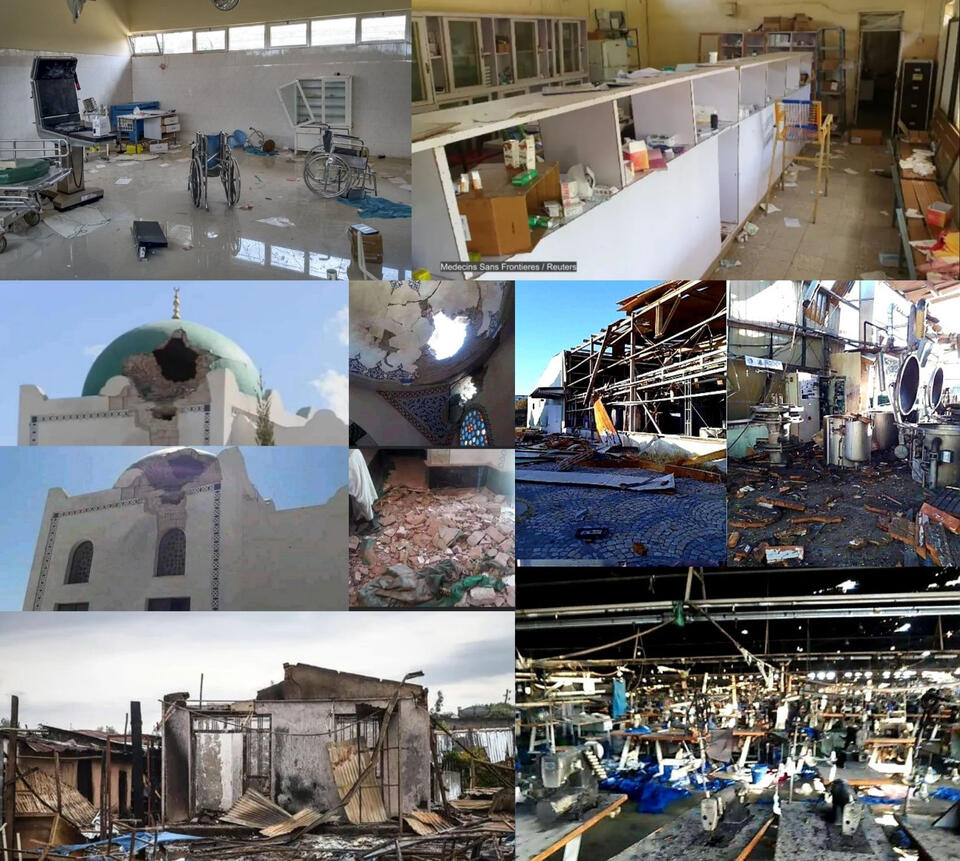
The deliberate damage of critical infrastructure in Tigray has devastating implications on the region's ability to sustain livable conditions. The invading forces have been targeting institutions that uphold society, with the destruction of schools, hospitals, factories, churches, mosques, and other civilian infrastructures.
According to MSF, the once well-functioning healthcare system in Tigray has almost completely collapsed due to the widespread and organized looting, vandalizing, and complete destruction of healthcare facilities by Ethiopian and Eritrean forces. Millions of people are left with no access to life-saving medications and treatments. With limited medical resources available, the risk of cholera and/or COVID-19 outbreak is considerably high.
Religious sites are an integral part of Tigrayan culture and history. In an effort to erase the Tigrayan identity, Eritrean and Ethiopian forces have looted and destroyed some of the most ancient churches, mosques, religious manuscripts, and artifacts in the world. Cultural heritage sites such as the Al-Nejashi mosque, one of the first mosques in Africa, and the Debre-Damo Monastery have been attacked.
- Human Rights Watch - Ethiopia: Unlawful Shelling of Tigray Urban Areas
- Human Rights Watch - Ethiopia: Tigray Schools Occupied, Looted
- AFP - 'No more sacred places': Heritage sites under siege in Tigray conflict
- MSF - 08 JUN 2108 JUN 21 We can do better than complete impunity for Tigray's destroyed health system
- AP - 'Our season': Eritrean troops kill, rape, loot in Tigray
Concentration camps and ethnic profiling
Since the start of the war, Tigrayans living in other parts of Ethiopia have reported being treated as criminal suspects and subjected to various forms of intimidation, discrimination, harassment, and abuse by government officials and the general public. The coordinated campaign of dehumanizing Tigrayans laid the groundwork for the Ethiopian regime to ethnically profile and unlawfully detain Tigrayans. The mass arrest of Tigrayans has intensified since the regime declared a nationwide state of emergency on November 2, 2021 - granting widespread power to the police and military. Authorities are encouraging citizens to take action against Tigrayans by reporting them to local police and there are organized vigilante groups partaking in the mass arrest campaign. There are nearly 150,000 volunteers in Addis Abeba alone assisting the police.
An estimated tens of thousands of Tigrayans have been arbitrarily detained and forcibly disappeared. In west Tigray, occupying Amhara forces have been going "door-to-door" to round up anyone who is ethnically Tigrayan. The forces have taken thousands of Tigrayan men, women, and children to makeshift concentration camps, cut off prisoners' limbs, mutilated bodies, and dumped them in mass graves or the river. In recent months, dozens of bloated and deformed corpses have emerged in eastern Sudan's Setit River with marks of torture easily visible on them. CNN has identified nine facilities in Humera, a small town in western Tigray, that are being used as concentration camps for Tigrayans housing thousands of detainees.
- The Globe and Mail: ‘They just vanished’: Tigrayans disappear for months in secret Ethiopian detention camps
- Business Insider: Thousands are being put into 'concentration camps' and butchered in an ethnic purge in Ethiopia, reports say
- New York Times: Mass Detentions of Civilians Fan ‘Climate of Fear’ in Ethiopia
- BBC: Ethiopia's Tigray conflict: Mass arrests and ethnic profiling haunt Addis Ababa
How can you help?
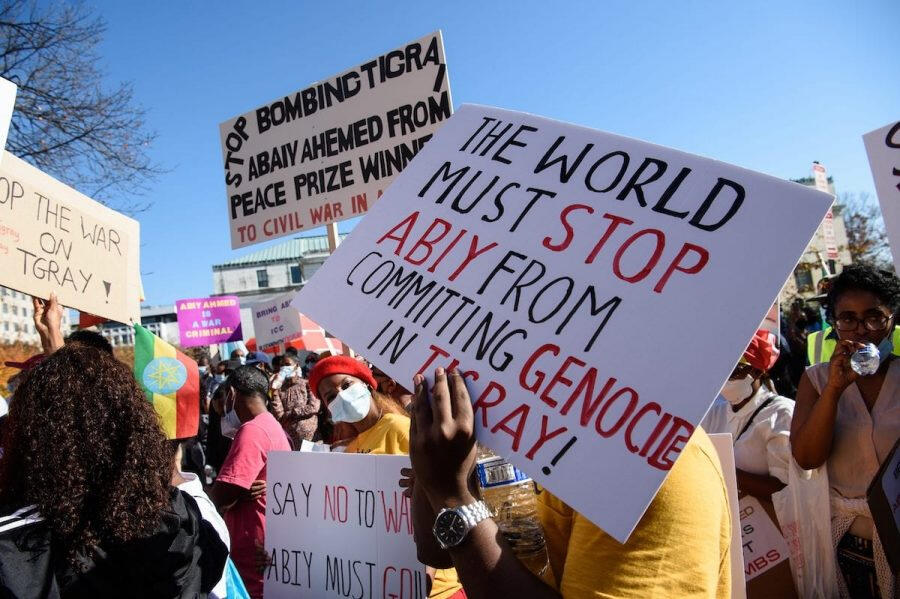
Call for action: Contact your government representatives and ask them to take action using the demands shared below.Advocate: Speak about what is happening in Tigray with your friends, family, colleagues, and anyone who will listen. Use your platform to spread awareness about what is happening in Tigray.Participate in social media campaigns. Use hashtags #TigrayGenocide, #AllowAccessToTigray, and #TigrayCantWait on social media.Amplify Tigrayan voices by following accounts advocating for Tigray like @OmnaTigray, @StandWithTigray, @TigrayYouthNetwork, @UnitedTegaruCanada, @tycalgary_, and @TegaruYouthYeg.
- Omna Tigray
- Stand With Tigray
- United Tegaru Canada
- Tegaru Youth Edmonton IG
- Tegaru Youth Edmonton Facebook
- MP Gary Anandasangaree's Petition
- MP Greg Mclean's Petition
- Open Letter to the Government of Canada
donate
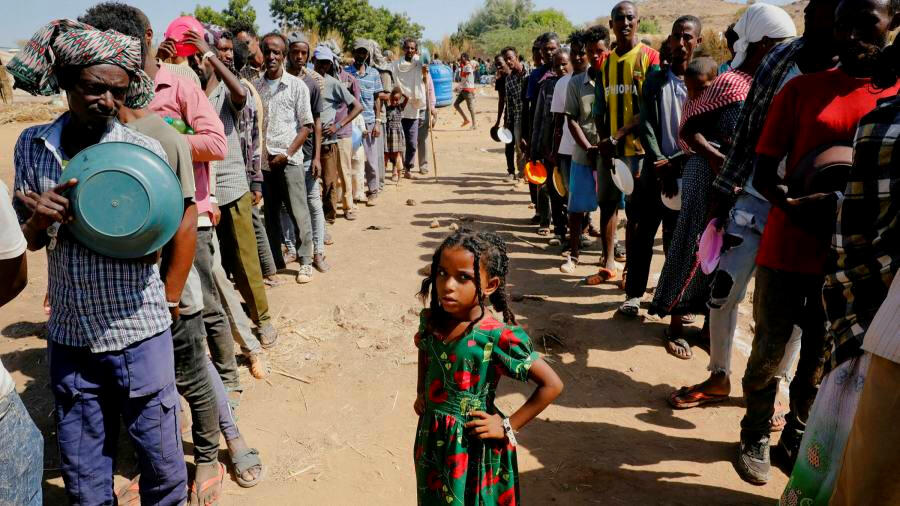
- Health Professionals Network for Tigray
- Ethar Relief
- Asmlash Grant Foundation
- Operation Rescue
- Ahwatna
- Emergency Recovery Fund for Refugees in Sudan
- Doctors Without Borders
- Tigray Development Association - North America
- UNHCR - Tigray Emergency
- GoFundMe: Emergency Recovery Fund for Refugees in Sudan
- Tegaru Disaster Relief Fund
